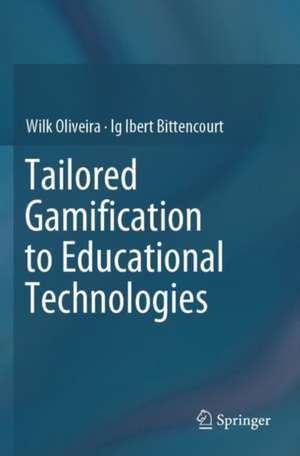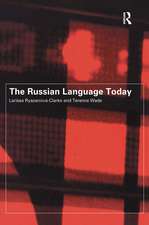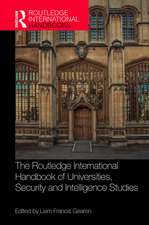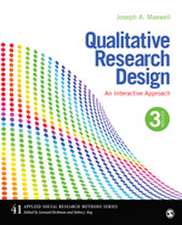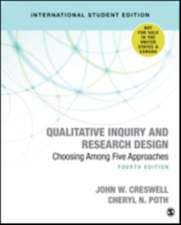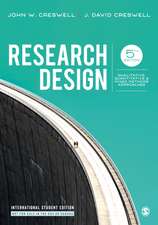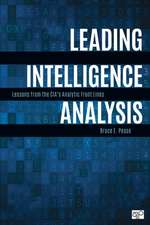Tailored Gamification to Educational Technologies
Autor Wilk Oliveira, Ig Ibert Bittencourten Limba Engleză Paperback – 30 oct 2020
| Toate formatele și edițiile | Preț | Express |
|---|---|---|
| Paperback (1) | 544.06 lei 38-44 zile | |
| Springer Nature Singapore – 30 oct 2020 | 544.06 lei 38-44 zile | |
| Hardback (1) | 554.41 lei 38-44 zile | |
| Springer Nature Singapore – 30 oct 2019 | 554.41 lei 38-44 zile |
Preț: 544.06 lei
Preț vechi: 680.07 lei
-20% Nou
Puncte Express: 816
Preț estimativ în valută:
104.12€ • 107.56$ • 86.65£
104.12€ • 107.56$ • 86.65£
Carte tipărită la comandă
Livrare economică 21-27 martie
Preluare comenzi: 021 569.72.76
Specificații
ISBN-13: 9789813298149
ISBN-10: 9813298146
Pagini: 97
Ilustrații: XVII, 97 p. 42 illus., 40 illus. in color.
Dimensiuni: 155 x 235 mm
Ediția:1st ed. 2019
Editura: Springer Nature Singapore
Colecția Springer
Locul publicării:Singapore, Singapore
ISBN-10: 9813298146
Pagini: 97
Ilustrații: XVII, 97 p. 42 illus., 40 illus. in color.
Dimensiuni: 155 x 235 mm
Ediția:1st ed. 2019
Editura: Springer Nature Singapore
Colecția Springer
Locul publicării:Singapore, Singapore
Cuprins
Introduction.- Theoretical Foundations.- Research Advances on Tailored Gamification.- Tailoring Gamified Educational Technologies.- Selecting the Most Suitable Gamification Elements for each Situation.- MeuTutor: Personalizing an Educational Technology based on Students’ Gamer Types.- 7 Conclusions.
Notă biografică
Prof. Wilk Oliveira holds a master’s degree in Computer Science from the Federal University of Alagoas (Brazil), with an exchange program at the University of Saskatchewan (Canada). He completed a bachelor’s degree in Computer Science and Pedagogy at the University of Pernambuco (Brazil). He is a Ph.D. student at the University of São Paulo (Brazil) and researcher at the Laboratory of Applied Computer Science to Advanced Social Technology and Education (University of São Paulo). Wilk Oliveira was a researcher at the Center of Excellence for Social Technologies (Federal University of Alagoas) and the Multi-Agent Distributed Mobile and Ubiquitous Computing Lab (University of Saskatchewan). He was also an assistant professor in the Postgraduate Program in Management of the Tiradentes University (Brazil), and in the Postgraduate Program in Computer Science and Computational Mathematics of the University of São Paulo (Brazil).
Prof. Ig Ibert Bittencourt is an Associate Professor at the Federal University of Alagoas (Brazil) and Co-Director of the Center of Excellence for Social Technologies. He received his Ph.D. in Computer Science from the Federal University of Campina Grande (Brazil) in 2009 and a postdoctoral degree in Computer Science from the University of Campinas (UNICAMP, Brazil) in 2013. During his Ph.D., he proposed a theoretical and computational model to build semantic web-based educational systems. Prof. Ig Bittencourt’s research career has been devoted to artificial intelligence in education (AIED), working on the design, development, and experimentation of educational technologies. He was the President of the Brazilian Computer Society’s Special Committee on Computers and Education (leading around 2500 researchers). Prof. Ig Bittencourt co-founded MeuTutor—an innovative company in the field of educational technology in Brazil.
Textul de pe ultima copertă
This book introduces and explores the field of tailored gamified educational technologies. Providing a theoretical overview of the domain, including a number of related psychological and educational theories along with a complete state-of-the-art analysis on this topic, it presents an approach and architecture to tailor these systems to students’ gamer type and age.
Caracteristici
Includes a special chapter on next-generation flash and prepares readers for the future Provides ten tips on how to protect flash sites from hackers Features a tutorial (with process and architecture) showing how to tailor gamified virtual learning and the best gamification elements for each gamer type Discusses two different empirical experiments in real environments and describes the students' flow experience
